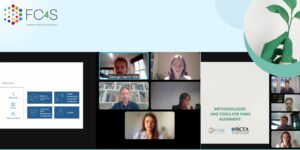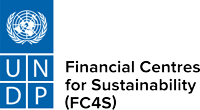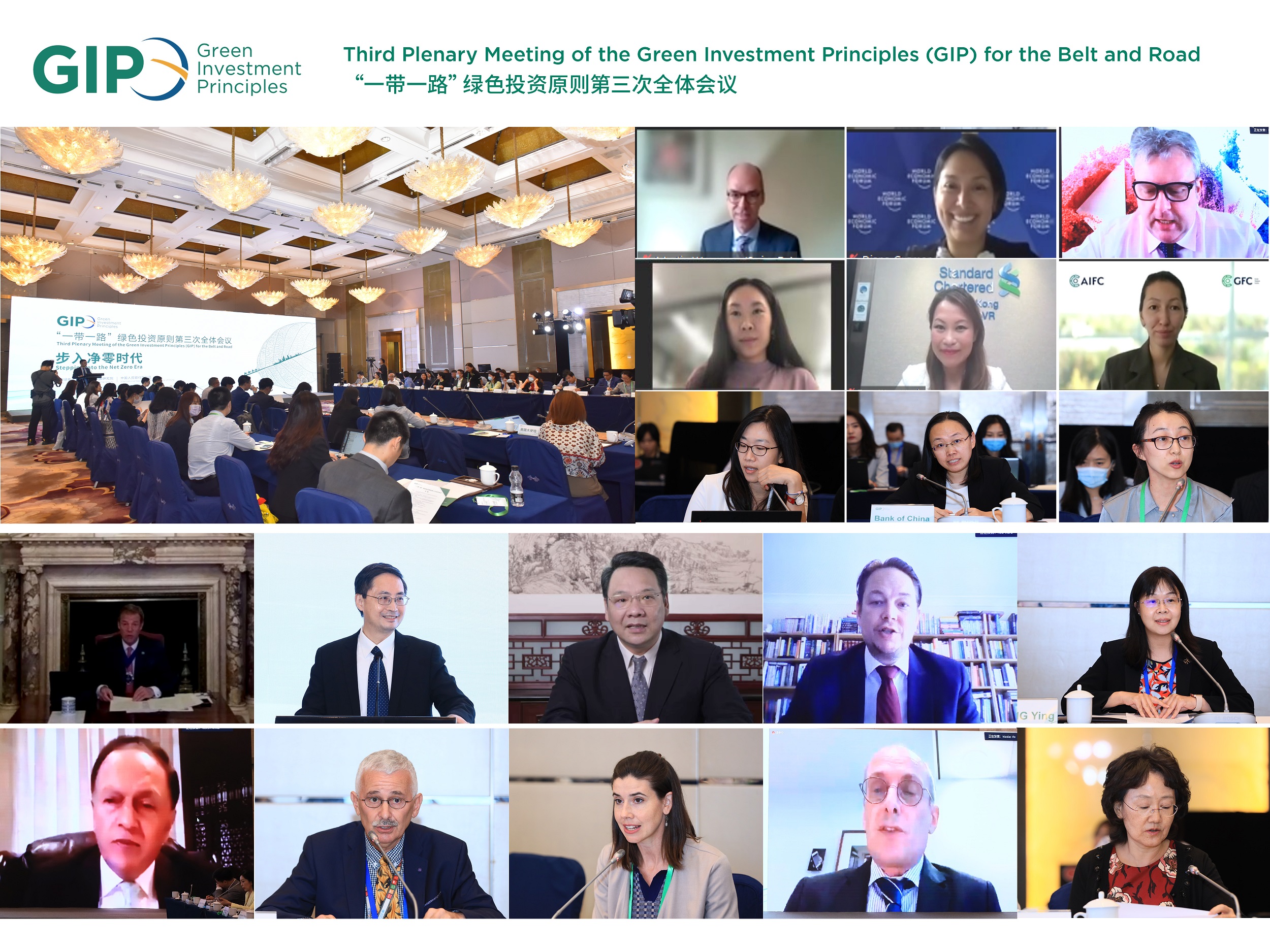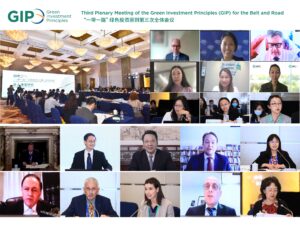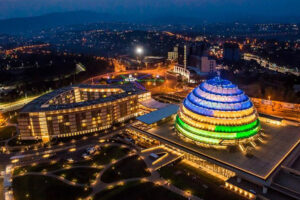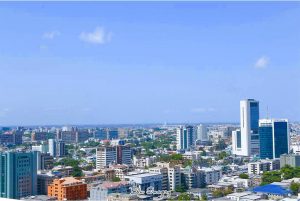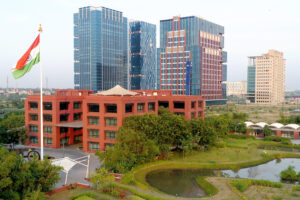Geneva – The relatively poor quality of data and its limited availability is the major challenge facing the world’s financial centres as they try to embrace climate-friendly investment and sustainability practices, according to a study published today.
Despite the challenges, including the huge impact of the COVID-19 pandemic, global financial centres have made significant progress in developing sustainable finance ecosystems.
At the same time, they have doubled or in some cases even tripled capital outflows toward low-carbon transition or the achievement of the Sustainable Development Goals (SDGs).
The UN-convened Financial Centres for Sustainability Network (FC4S) today published findings based on its third Annual Assessment survey, which 24 of its 30 members in 2020 (80%) responded to.
The survey helps FC4S to assess the global development of sustainable finance. It provides members with a baseline alignment to the Paris Agreement and the SDGs, and an update on progress in different centres. It also helps identify areas where more support is required to underpin progress, and further drive progress through strategic roadmap development.
The report, developed in partnership with PwC, a FC4S partner and co-funded by EIT Climate-KIC, was launched during the annual Abu Dhabi Sustainable Finance Forum 2021, hosted by Abu Dhabi Global Market (ADGM) and taking place during the 3rd Abu Dhabi Sustainability Week – a virtual event.
The report shows that between 2018 and 2020, the financial centres which participated in the FC4S Assessment Programme have made significant progress, regardless of their size or maturity level.
Other key trends include:
- Financial centres across all continents are mobilizing their resources, connectivity, expertise and capital to align with the objectives of a sustainable financial system.
- They are working with other institutions and private actors to build high-level approaches and initiatives to make significant progress at a national level.
- The study shows that the number and the diversity of the stakeholders involved in member FC4S sustainable finance initiatives nearly doubled between 2018 and 2020.
- The share of centres reporting having implemented fiscal incentives or public-backed funds and institutions to support green and sustainable finance activities doubled between 2018 and 2020.
As they strive to deliver capital to support the low-carbon transition and the achievement of the Sustainable Development Goals, financial centres report several key challenges. These include:
- Thirst for data: Data quality and availability is the primary challenge faced by two thirds of financial centres. Leading centres are facing issues on comparability and market sizing, while private actors are struggling to identify which capital flows can be considered as green and sustainable.
- Going beyond climate: Climate Change continues to be a major focus for any private and public institution, and it remains a point of entry into sustainable activities. Social and biodiversity themes are emerging.
- Public authorities are key for take-off: Public authorities can play an important role in encouraging the implementation of Paris alignment commitments, and the SDGs, addressing shared challenges and promoting the use and harmonization of assessment tools and methods.
- Policy and regulations remain a critical driver: Four out of five financial centres consider that new policy initiatives can act as a “positive enabler” or even be a “major driver” of sustainable finance.
- Increasing international collaboration: Nearly half of centres have identified “building connectivity” in their top 3 priorities, the continuous expansion of the FC4S network illustrates such a trend.
- Professional development and education: Skill shortage may prevent public and private institutions alike in going beyond commitments and scaling up sustainable financial activities, but centres are reporting a growing number of sustainable finance programmes and training that are available both to students and workers.
Commenting on the report, Jennifer Reynolds, President and CEO, Toronto Finance International and FC4S Network Co-Chair, said:
“It is clear the economic crisis created by the COVID-19 pandemic has not halted the development of sustainable finance. Green bonds issuance was sustained across 2020. Innovative investment products targeting green and sustainable issues have been proliferating globally and ESG investment funds registered record inflows throughout 2020. As this FC4S report makes clear, in line with these developments financial centres across all continents are increasingly mobilizing their resources, connectivity, expertise and capital to align with the objectives of a sustainable financial system, in short, delivering capital to support the low-carbon transition and the achievement of the SDGs.”
Lamia Merzouki, Deputy General Manager, Casablanca Finance City Authority and FC4S Network Co-Chair, said:
“The FC4S Assessment Programme offers a unique perspective, capturing the pre-COVID trends to better project the fierce dynamism that sustainable finance will likely enjoy in the next 5 to 10 years. Understanding the central role financial centres are playing in the transition of the global financial system, ensures FC4S support members build back better and accelerate the integration of the sustainable finance agenda into the global economic recovery as we deal with the COVID-19 pandemic.”
A FC4S member, Emmanuel Givanakis, Deputy CEO of the Financial Services Regulatory Authority (FSRA) of Abu Dhabi Global Market (ADGM), said:
“The progress showcased in the FC4S Assessment Report is indicative of the instrumental role that international financial centres play in championing sustainable finance practices across their jurisdictions. It further reinforces the unwavering commitment of FC4S members towards strengthening sustainability over recent years, especially amid headwinds caused by the COVID-19 pandemic. At ADGM, we are deeply committed to these global sustainability objectives and have manifested our dedication to sustainable finance through our many initiatives, first and foremost of which is our annual Abu Dhabi Sustainable Finance Forum. We are pleased that our flagship event has served as the launchpad for this year’s report and hope to continue working alongside our industry peers in service of our collective growth.”
Read the full report here.
For more information, please contact:
Mr. Ciaran Byrne
Email: ciaran@storylab.ie
NOTES:
Assessment Programme participation: Since 2018, the participation of FC4S members in the Assessment Programme has been steadily growing both in terms of number of participants and response rate. In 2020, twice as many Financial centres participated in the Assessment Programme as in 2018, and the response rate increased, 80% in 2020 vs. 70% in 2018 highlighting the importance FC4S members are placing on the assessment programme as a key element of their centre activities.
Financial Centres for Sustainability: The International Network of Financial Centres for Sustainability (FC4S Network) is a partnership between the world’s financial centres, comprised of 33 member centres as of January 2021. An output of the UNEP Inquiry, the FC4S Network is supported in its work by both the UNDP Finance Sector Hub and the UNEP Finance Initiative. The objective of the Network is to enable financial centres to exchange experience, drive convergence, and take action on shared priorities to accelerate the expansion of green and sustainable finance. The FC4S Secretariat works with financial centre members to achieve this objective, through the provision of research on emerging issues, guidance on best practices, strategic advisory, and project development and support services, including through regional initiatives.
At 33 members, the FC4S Network members include Abidjan, Abu Dhabi, Astana, Barcelona, Beijing, Cairo, Casablanca, Dublin, Frankfurt, Geneva, Guernsey, Hong Kong, Kuala Lumpur, Lagos, Liechtenstein, London, Lisbon, Luxembourg, Milan, Madrid, Mexico, Montréal, Nairobi, New York City, Paris, Rio de Janeiro, Seoul, Shanghai, Shenzhen, Stockholm, Tokyo, Toronto, and Zurich.
